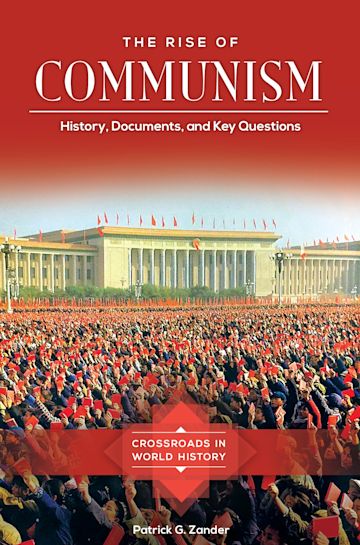This product is usually dispatched within 1 week
Free US delivery on orders $35 or over
You must sign in to add this item to your wishlist. Please sign in or create an account
This book investigates the Communist political phenomenon, including the origins and development of Communism as well as the revolutions that led to the rise of the major Communist states around the world.
Written for high school students, undergraduates, and general readers, this book surveys the global rise of Communism. It begins with a timeline and narrative overview, which are followed by reference entries, primary source documents, and original argumentative essays on enduring issues related to Communism.
The book first covers the earliest phases of the "Utopian Socialist" movement and the beginnings of Marxist theory. It then discusses the Russian Revolution of 1917; the creation of the Soviet Union; the regime of terror instituted by Stalin; the expansion of Communism during the years of the Cold War, particularly in Asia; and the Cuban Revolution and the regime of Fidel Castro. It also discusses the progression toward revolution among the European Satellite countries as it included the Hungarian Revolution of 1956, the Czech revolution of 1968, and the multiple revolutions from 1989–1991 that saw the collapse of the Soviet system and the Cold War.
| Published | Feb 16 2018 |
|---|---|
| Format | Hardback |
| Edition | 1st |
| Extent | 256 |
| ISBN | 9781440847059 |
| Imprint | ABC-CLIO |
| Dimensions | 9 x 6 inches |
| Series | Crossroads in World History |
| Publisher | Bloomsbury Publishing |
Free US delivery on orders $35 or over
Your School account is not valid for the United States site. You have been logged out of your account.
You are on the United States site. Would you like to go to the United States site?
Error message.

